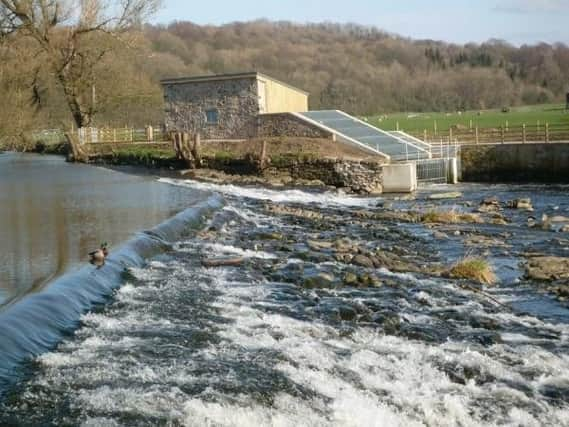Whalley hydro project powers ahead in increasing the use of renewable energy and reducing carbon emissions


The Conservative MP was shown around by two of its directors and founder members, Tim Ashworth and Graham Sowter. Accompanying Mr Evans on his visit was borough councillor David Berryman, who was an early supporter and is a shareholder in the hydro scheme.
The plant, which has just completed its fifth year of operation, cost £750,000 to build, subscribed by around 300 shareholders. In both environmental and financial terms, it has been a resounding success, according to its directors.
Advertisement
Hide AdAdvertisement
Hide AdMr Sowter explained: "In just under five years, total generation has passed two Gigawatts – that’s two million kilowatts or an average of 400,000 kWh per year. This is around 15% more than anticipated based on average rainfall and historical river flows. What distinguishes Whalley Community Hydro Limited from commercial renewable energy companies is that it has been established as a Community Benefit Society and is run entirely by volunteers. The interest paid to shareholders is limited to a maximum of 3-5% and any surplus profits are then distributed and administered via a Community Benefit Scheme. This is used exclusively to fund other local ‘not-for-profit’ power generating and energy saving ventures. In five years so far, the fund has distributed over £75,000 to around 13 carbon saving schemes."
Perhaps the best example of such projects are those currently up and running in three local primary schools at Whalley, Read and Simonstone. Each of them has had their lighting replaced with low energy fittings and have also been equipped with large, 12kW, solar roof panels to provide much of the power that each school uses. The results are available in real time over the internet and can be viewed on a PC, laptop, tablet or smartphone.
The Hydro directors took the opportunity to lobby their MP on the general and environmental benefits of their scheme and the scope for other hydro projects in the local area. However, they pointed out that it was now almost impossible for other similar schemes to start up following Government cuts in the feed-in tariff (FITs) for hydro.
Mr Sowter added: "A new scheme would qualify for only around one third of the support that Whalley receives. While solar panels and wind turbines had become cheaper to install and some cuts in FITs could be justified, there are no economies of scale in hydro schemes; each scheme is bespoke to a particular river location and there are high civil, mechanical and electrical engineering costs."